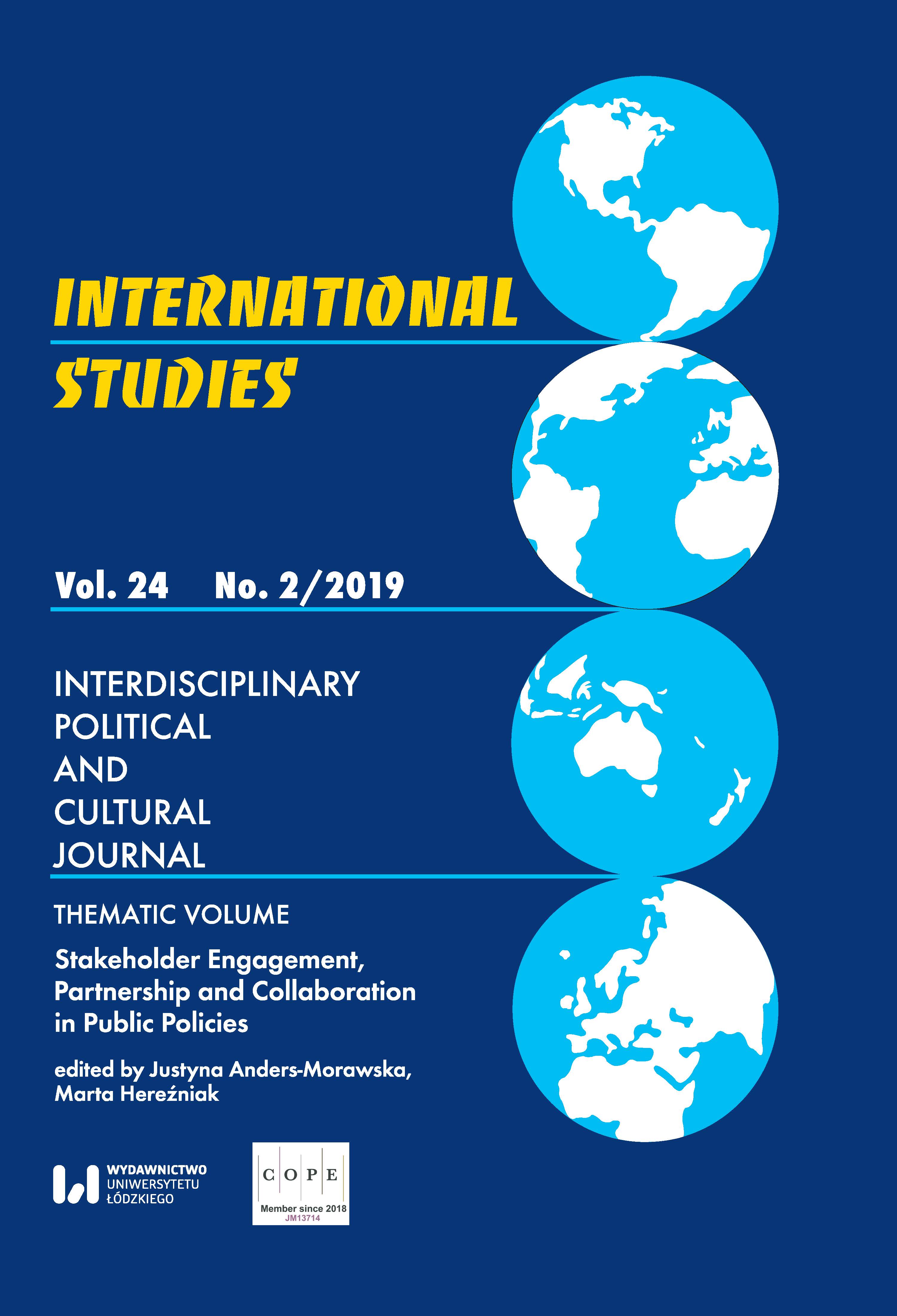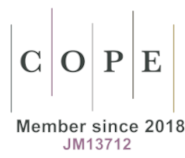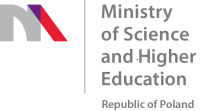Assessing the Learning Outcomes of Food-related Educational Tourism Events for University Students: The Case of the International Student Competition of Fermo, Italy
DOI:
https://doi.org/10.18778/1641-4233.24.07Słowa kluczowe:
educational tourism, food tourism, experiential learning, soft skills, knowledge, employabilityAbstrakt
This paper examines the International Student Competition on Place Branding and Mediterranean Diet held in Fermo, Italy, in the context of the development of rural areas. This one-week food-related educational programme was organised by the University of Macerata’s Department of Education, Cultural Heritage and Tourism in collaboration with The Piceno Laboratory on the Mediterranean Diet, a local network of public and private stakeholders committed to the promotion of Fermo area as a touristic destination based on traditional gastronomy. The aim of this study was to understand how and to what extent such food-related educational events may contribute to providing students with the knowledge, expertise and soft skills needed for careers in the food tourism sector. Of interest also was how such events may benefit the development of rural areas. The ISC was founded in 2016 and continued in 2017, 2018 and 2019. In order to assess students’ perceptions about the experience, specifically regarding what they felt they had learned about food tourism, and which soft skills they had acquired or honed, 13 students who participated in the 2017 event were interviewed for a qualitative study. Moreover, the authors drew upon information gleaned from interactions with students and teachers, as well as with several important actors of the local food and tourism sector, including tourism and hospitality entrepreneurs and representatives of government agencies, with whom they collaborated in the context of planning, running and evaluating the events. The findings show that the ISC can provide students with a good general understanding of the territory and practical knowledge about place branding and food tourism. In terms of career preparation, the combination of fieldwork activities with traditional lectures and group activities was particularly fruitful in promoting soft skills such as communication, efficient use of social media, teamwork, problem-solving and decision making.
Pobrania
Bibliografia
Australian Department of Education, Science and Training, Australian Chamber of Commerce and Industry & Business Council of Australia. Employability Skills for the Future. Canberra: Department of Education, Science and Training, 2002.
Zobacz w Google Scholar
Bacigalupo, M., et al. EntreComp: The Entrepreneurship Competence Framework. Luxembourg: Publication Office of the European Union, 2016.
Zobacz w Google Scholar
Başaran, K. Experiential Learning in Tourism Education in the North Cyprus. Academic dissertation, 2016.
Zobacz w Google Scholar
Bauer, K. W., and J. S. Bennett. “Alumni Perceptions Used to Assess Undergraduate Research Experience.” The Journal of Higher Education 74.2 (2003): 210–230.
Zobacz w Google Scholar
DOI: https://doi.org/10.1353/jhe.2003.0011
Baum, T. “Skills and Training for the Hospitality Sector: A Review of Issues.” Journal of Vocational Education and Training 54.3 (2002): 343–364.
Zobacz w Google Scholar
DOI: https://doi.org/10.1080/13636820200200204
Bertella, G. “Knowledge in Food Tourism: The Case of Lofoten and Maremma Toscana.” Current Issues in Tourism 14.4 (2011): 355–371.
Zobacz w Google Scholar
DOI: https://doi.org/10.1080/13683500.2010.489638
Bessière, J. “Local Development and Heritage: Traditional Food and Cuisine as Tourist Attractions in Rural Areas.” Sociologia Ruralis 38.1 (1998): 21–34.
Zobacz w Google Scholar
DOI: https://doi.org/10.1111/1467-9523.00061
Boydell, T. Experiential Learning. Manchester: Department of Adult Education, University of Manchester, 1976.
Zobacz w Google Scholar
Caballero, C. L., et al. “The Work Readiness Scale (WRS): Developing a Measure to Assess Work Readiness in College Graduates.” Journal of Teaching and Learning for Graduate Employability 2.2 (2011): 41–54.
Zobacz w Google Scholar
DOI: https://doi.org/10.21153/jtlge2011vol2no1art552
Cavicchi, A., et al. “Higher Education Institutions as Managers of Wicked Problems: Place Branding and Rural Development in Marche Region, Italy.” International Food and Agribusiness Management Review, 16(A) (2013): 51–68.
Zobacz w Google Scholar
Cavicchi, A., et al. “Participatory Location-based Learning and ICT as Tools to Increase International Reputation of a Wellbeing Destination in Rural Areas: A Case Study.” Tourism, Health, Wellbeing and Protected Areas. Eds. I. Azara, et al. Wallingford: CABI, 2018, pp. 82–94.
Zobacz w Google Scholar
Chieffo, L. “The Freshman Factor: Outcomes of Short-Term Education Abroad Programs on First-Year Students.” Conference Poster and Presentation at NAFSA Conference. Minneapolis, MN, May, 2007.
Zobacz w Google Scholar
Crawford, P., et al. Comparative Analysis of Soft Skills: What is Important for New Graduates. Michigan State University and the University Industry Consortium, 2011, pp. 1–24.
Zobacz w Google Scholar
Croy, W. G. “Location-based Learning: Considerations for Developing and Implementing Destination-partnered Authentic-experiential Learning.” Journal of Hospitality & Tourism Education 21.1 (2009): 17–23.
Zobacz w Google Scholar
DOI: https://doi.org/10.1080/10963758.2009.10696933
Dewey, J. Experience and Education. New York: Macmillan, 1938.
Zobacz w Google Scholar
Everett, S., and C. Aitchison. “The Role of Food Tourism in Sustaining Regional Identity: A Case Study of Cornwall, South West England.” Journal of Sustainable Tourism, 16.2 (2008): 150–167.
Zobacz w Google Scholar
DOI: https://doi.org/10.2167/jost696.0
García-Rosell, J. C. “Promoting Critical Reflexivity in Tourism and Hospitality Education through Problem-based Learning.” The Routledge Handbook of Tourism and Hospitality Education. Eds. D. Dredge, and M. J. Gross. New York and London: Routledge, 2014, pp. 279–291.
Zobacz w Google Scholar
Gilmore, A., and D. Carson. “‘Integrative’ Qualitative Methods in a Services Context.” Marketing Intelligence & Planning 14.6 (1996): 21–26.
Zobacz w Google Scholar
DOI: https://doi.org/10.1108/02634509610131126
Gmelch, G. “Crossing Cultures: Student Travel and Personal Development.” International Journal of Intercultural Relations 21.4 (1997): 475–490.
Zobacz w Google Scholar
DOI: https://doi.org/10.1016/S0147-1767(97)00021-7
Goh, E. “The Value and Benefits of Fieldtrips in Tourism and Hospitality Education.” Higher Learning Research Communications 1.1 (2011): 60–70.
Zobacz w Google Scholar
DOI: https://doi.org/10.18870/hlrc.v1i1.18
Hall, C. M., et al. “Consuming Places: The Role of Food, Wine and Tourism in Regional Development.” Food Tourism around the World. Eds. M. C. Hall, et al. New York and London: Routledge, 2004, pp. 37–71.
Zobacz w Google Scholar
Hall, C. M., and L. Sharples. “The Consumption of Experiences or the Experience of Consumption? An Introduction to the Tourism of Taste.” Food Tourism around the World. Eds. M. C. Hall, et al. New York and London: Routledge, 2004, pp. 13–36.
Zobacz w Google Scholar
DOI: https://doi.org/10.1016/B978-0-7506-5503-3.50004-X
Hjalager, A. M. “A Typology of Gastronomy Tourism.” Tourism and Gastronomy. Ed. A. M. Hjalager and G. Richards. New York and London: Routledge, 2002, pp. 21–35.
Zobacz w Google Scholar
Hjalager, A. M. “What Do Tourists Eat and Why? Towards a Sociology of Gastronomy and Tourism.” Gastronomy and Tourism. Eds. J. Collen and G. Richards, Gravenwezel/Schilde, Belgium: Academie Voor de Streekgebonden Gastronomie, 2003, pp. 54–74.
Zobacz w Google Scholar
DOI: https://doi.org/10.4324/9780203218617
Horng, J. S., and C. T. Tsai. “Constructing Indicators of Culinary Tourism Strategy: An Application of Resource-based Theory.” Journal of Travel & Tourism Marketing 29.8 (2012): 796–816.
Zobacz w Google Scholar
DOI: https://doi.org/10.1080/10548408.2012.730945
http://www.ibe.unesco.org/fileadmin/user_upload/Publications/IBE_GlossaryCurriculumTerminology2013_eng.pdf Accessed 9 Oct 2019.
Zobacz w Google Scholar
Johanson, M., et al. “Revealing Key Competencies of Hospitality Graduates Demanded by Industry: A 25-year Review.” 2010. International CHRIE Conference-Refereed Track. 5. https://scholarworks.umass.edu/refereed/CHRIE_2010/Saturday/5
Zobacz w Google Scholar
Jorgensen, D. L. “Participant Observation.” Emerging Trends in the Social and Behavioral Sciences: An Interdisciplinary, Searchable, and Linkable Resource, Wiley Online Library (2015): 1–15.
Zobacz w Google Scholar
DOI: https://doi.org/10.1002/9781118900772.etrds0247
Kalinowski, K. M., and B. Weiler. “Educational Travel.” Special Interest Tourism. Eds. B. Weiler and C.M. Hall. London: Belhaven Press, 1992, pp. 15–26.
Zobacz w Google Scholar
Kolb, D. A. Experiential Learning. Englewood Cliffs, NJ: Prentice Hall, 1984.
Zobacz w Google Scholar
Lee, S. A. “Increasing Student Learning: A Comparison of Students’ Perceptions of Learning in the Classroom Environment and Their Industry-based Experiential Learning Assignments.” Journal of Teaching in Travel & Tourism 7.4 (2008): 37–54.
Zobacz w Google Scholar
DOI: https://doi.org/10.1080/15313220802033310
Mouton, W. “Experiential Learning in Travel Environments as a Key Factor in Adult Learning.” Delta Kappa Gamma Bulletin 69.1 (2002): 36–42.
Zobacz w Google Scholar
Osterwalder, A., and Y. Pigneur. Creare modelli di business. Milano: FAG, 2012.
Zobacz w Google Scholar
Paris, C. M. “Social Constructivism and Tourism Education.” Journal of Hospitality, Leisure, Sport and Tourism Education 10.2 (2011): 103–108.
Zobacz w Google Scholar
DOI: https://doi.org/10.3794/johlste.102.385
Rees, C., et al. The Student Employability Profile. A Guide for Higher Education Practitioners. UK Higher Education Academy, 2006.
Zobacz w Google Scholar
Richards, G. “Gastronomy: An Essential Ingredient in Tourism Production and Consumption.” Tourism and Gastronomy. Ed. A. M. Hjalager and G. Richards. New York and London: Routledge, 2002, pp. 2–20.
Zobacz w Google Scholar
Rinaldi, C. “Food and Gastronomy for Sustainable Place Development: A Multidisciplinary Analysis of Different Theoretical Approaches.” Sustainability 9.10 (2017): 1748.
Zobacz w Google Scholar
DOI: https://doi.org/10.3390/su9101748
Rinaldi, C., and A. Cavicchi. “Universities’ Emerging Roles to Co-create Sustainable Innovation Paths: Some Evidences from the Marche Region.” AESTIMUM 69 (Dicembre 2016): 211–224.
Zobacz w Google Scholar
Ritchie, B., et al. Managing Educational Tourism, Clevedon: Channel View Publications, 2003.
Zobacz w Google Scholar
DOI: https://doi.org/10.21832/9781873150528
Robles, M. M. “Executive Perceptions of the Top 10 Soft Skills Needed in Today’s Workplace.” Business Communication Quarterly 75.4 (2012): 453–465.
Zobacz w Google Scholar
DOI: https://doi.org/10.1177/1080569912460400
Ruhanen, L. “Bridging the Divide between Theory and Practice: Experiential Learning Approaches for Tourism and Hospitality Management Education.” Journal of Teaching in Travel & Tourism 5.4 (2006): 33–51.
Zobacz w Google Scholar
DOI: https://doi.org/10.1300/J172v05n04_03
Santich, B. “The Study of Gastronomy and Its Relevance to Hospitality Education and Training.” International Journal of Hospitality Management 23.1 (2004): 15–24.
Zobacz w Google Scholar
DOI: https://doi.org/10.1016/S0278-4319(03)00069-0
Scarpato, R. “Gastronomy as a Tourist Product: The Perspective of Gastronomy Studies.” Tourism and Gastronomy. Ed. A. M. Hjalager and G. Richards. New York and London: Routledge, 2002, pp. 51–70.
Zobacz w Google Scholar
Shah, S., et al. “Use of Business Competitions to Enhance Student Employability in Higher Education”. Recent Advances in Educational Technologies: Proceedings of the 2015 International Conference on Education and Modern Educational Technologies (EMET 2015). Educational Technologies Series, 18. Greece: WSEAS, 2015, pp. 140–147.
Zobacz w Google Scholar
Stone M. J., and J. F. Petrick. “The Educational Benefits of Travel Experiences: A Literature Review.” Journal of Travel Research 20.10 (2013): 1–14.
Zobacz w Google Scholar
The Seven Countries Study. http://www.sevencountriesstudy.com/ Accessed 23 Mar 2017.
Zobacz w Google Scholar
U.S. Department of Education, Employability Skills. http://cte.ed.gov/initiatives/employability-skills-framework Accessed 14 Jan 2018.
Zobacz w Google Scholar
UNESCO International Bureau of Education IBE Glossary of Curriculum Terminology, UNESCO, Geneva, Switzerland, 2013.
Zobacz w Google Scholar
Vygotsky, L. S. Mind in Society: The Development of Higher Psychological Processes. Cambridge, MA: Harvard University Press, 1978.
Zobacz w Google Scholar
World Economic Forum. The Future of Jobs Employment, Skills and Workforce Strategy for the Fourth Industrial Revolution. Jan 2016. http://www3.weforum.org/docs/WEF_Future_of_Jobs.pdf Accessed 14 Jan 2018.
Zobacz w Google Scholar
Yorke, M., and P. T. Knight. Learning & Employability. Embedding Employability into the Curriculum. The Higher Education Academy, 2004, pp. 1–28.
Zobacz w Google Scholar
Pobrania
Opublikowane
Jak cytować
Numer
Dział
Licencja

Utwór dostępny jest na licencji Creative Commons Uznanie autorstwa – Użycie niekomercyjne – Bez utworów zależnych 4.0 Międzynarodowe.

















